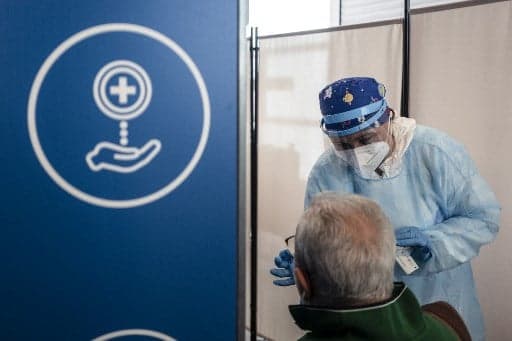But Italy's government is now re-evaluating its approach following criticism of its response so far in a report published on Thursday by independent health watchdog GIMBE.
“A ‘wait-and-see’ strategy on managing the Delta variant is unacceptable,” wrote GIMBE head Dr. Nino Cartabellotta.
MAP: Where is the Delta variant spreading in Italy?

Advertisement
The report described Italy’s current levels of full vaccination coverage as “worrying” considering “the lower effectiveness of a single dose against this variant “.
At the moment, just over a quarter of the Italian population is fully vaccinated against Covid-19, compared to 46% in the United Kingdom.
The report pointed out that some 2.5 million people aged over 60 in Italy have not yet received the first dose of a vaccine.
The foundation urged the government to "properly implement" measures recommended by the ECDC in its report published earlier this week: "enhance sequencing and contact tracing, implement screening strategies for those arriving from abroad, and accelerate the administration of the second dose in over 60s".
Cartabellotta said: “You can’t control the Covid pandemic only with vaccines, masks and distancing. Today the Delta variant requires tracing and sequencing”.
Amid rising concern about the impact of the variant, which is thought to increase the risk of hospitalisation, Italian health authorities on Monday imposed new travel restrictions on arrivals from the UK – almost a month after other EU countries including France and Germany did the same.
Despite concerns about the spread of Delta, Italian health authorities on Friday also confirmed that all regions of Italy would be allowed to ease the health measures further from Monday, June 28th, as the number of infections recorded remained low this week.
READ ALSO: Italy to drop outdoor mask-wearing rule from June 28th
The last region still classed as a 'yellow' zone, Valle d'Aosta, will join the rest of the country in the low-risk 'white' tier, meaning most rules can be relaxed.
"With the decree I just signed, all of Italy will be 'white' starting from Monday. It is an encouraging result, but we still need caution and prudence," Speranza
wrote on Facebook.
Referring to the spread of more transmissible variants of the coronavirus, the minister added: "the battle has not yet been won."

Join the conversation in our comments section below. Share your own views and experience and if you have a question or suggestion for our journalists then email us at [email protected].
Please keep comments civil, constructive and on topic – and make sure to read our terms of use before getting involved.
Please log in here to leave a comment.